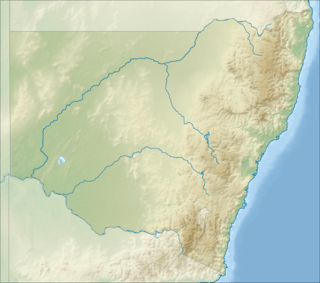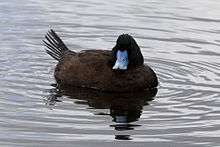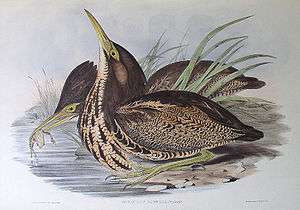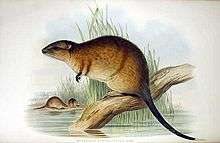Cecil Hoskins Nature Reserve
The Cecil Hoskins Nature Reserve is a protected nature reserve located in the Southern Highlands area of New South Wales Australia. The 46-hectare (110-acre) reserve is situated between the towns of Bowral and Moss Vale and is known for bird watching.[1]
| Cecil Hoskins Nature Reserve New South Wales | |
|---|---|
IUCN category IV (habitat/species management area) | |
A swamp and wetlands are located within the reserve | |
 Cecil Hoskins Nature Reserve | |
| Nearest town or city | Bowral |
| Coordinates | 34°31.942′S 150°23.887′E |
| Established | 7 March 1975[1] |
| Area | 0.46 km2 (0.2 sq mi)[1] |
| Managing authorities | NSW National Parks and Wildlife Service |
| Website | Cecil Hoskins Nature Reserve |
| See also | Protected areas of New South Wales |
Description
The nature reserve is a mostly cleared area with a dammed section of the Wingecarribee River. Much of the area was cleared in the 1820s by Charles Throsby. The Throsby Park Historic Site is located near the reserve. There is some remnant bushland with the rare Camden woollybutt and some of the best stands of snow gums in the southern Highlands. Recent plantings have increased the area of natural bushland.
Barbecue, picnic facilities and public toilets are present. The area is more of a cultural reserve than preserved natural bushland.[2]
Etymology
Sir Cecil Hoskins had been a resident at Exeter and Moss Vale and had a keen interest in gardens. He had a profound knowledge of trees and shrubs in particular and his advice on parks and gardens was sought by many. As well as his extensive home gardens at Invergowrie Exeter and later at Cardrona Moss Vale, there is much evidence of his keen interest in creating parks and gardens. For example, he planned the unique garden setting for the Portland Cement Works at Berrima, he was responsible for the planning and development of Seymour Park in Moss Vale and was Chairman of the Berrima District Committee of the Remembrance Driveway.[2]
Fauna
Foxes cause considerable damage to the local wildlife. They have been targeted by shooting, poisoning and trapping. The platypus, water rat and eastern grey kangaroo are recorded here.
The bird life of the area is of interest. At least 90 species of birds have been recorded. Cecil Hoskins Nature Reserve is an important resting and feeding place for many migratory species, particularly waterbirds. During drought, many inland birds find refuge here. Noteworthy sightings recorded here include the blue-billed duck and the rare Australasian bittern.[2]
Gallery


 Australian water rat
Australian water rat
References
- "Cecil Hoskins Nature Reserve". Office of Environment and Heritage. Government of New South Wales. Retrieved 19 September 2014.
- "Cecil Hoskins Nature Reserve: Plan of Management" (PDF). NSW National Parks and Wildlife Service. Government of New South Wales. May 1999. ISBN 0-7310-7676-1. Retrieved 23 September 2012.